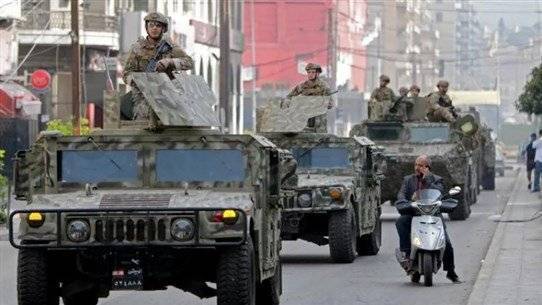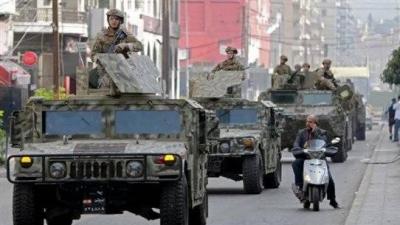The horrific crime witnessed in Tripoli, northern Lebanon, last Friday afternoon, which resulted in four fatalities, has instigated fear among Tripoli residents of a return to exploitation of the city and its dire economic conditions to incite unrest again. Despite the sporadic security incidents occurring across Lebanon, with Tripoli experiencing a significant share, the armed attack on a mobile phone shop in the Al-Tall neighborhood, near Shahin Hospital, by unknown masked gunmen firing automatic weapons was considered a dangerous precedent and resulted in what resembled a massacre.
Immediately, two workers, brothers Omar and Mohammad Al-Hosni from the town of Babanin in Akkar, succumbed to their injuries, as did the shop owner, Mahmoud Khodr from Jabal Mohsen. One of the attackers, Khaled Abdul Majid, was also killed, while others fled the scene after committing their crime, prompting the army to secure the area.
The military leadership stated in a communiqué from the "Directorate of Guidance" that the shooter is a wanted individual with a criminal and terrorist background. He was accompanied by three unidentified individuals riding motorcycles, who fired shots at the mobile phone shop, entered the store, shot inside, and then escaped to an unknown location.
A military force arrived to ensure the area was isolated, and an explosives expert detonated a grenade found abandoned in the store due to the risk of moving it, also neutralizing two other grenades. The statement confirmed that the intelligence directorate arrested an individual involved in the attack, and investigations commenced under the supervision of the competent judiciary.
This crime has reignited fears of a return to tensions and lawlessness. Political researcher Khaldoun Al-Sharif told “Asharq Al-Awsat”: “Governance is about prestige, and Prime Minister Najib Mikati, as well as Interior Minister Bassam Maulawi, are both from Tripoli; the responsibility for security falls on their shoulders.” Al-Sharif added: “I am not saying they are behind the problems, but they are in the executive authority, and their indifference to what happens in the city—from social security loss to water and electricity cuts, the sinking of a migrant ship, and the collapse of a house in Dhahr Al-Mghar—this all diminishes the respect for the state.” He emphasized that the responsibility lies with political and security authorities, starting from the Prime Minister down to the governor, through the concerned ministers, as security forces cannot shoulder the burden alone.
Former Minister Rashid Derbas characterized the crimes currently being committed in Tripoli as “an act of gangs armed with grenades and automatic weapons, with plans, rather than being the work of the poor trying to earn their living.” However, Derbas expressed concerns, in statements to “Asharq Al-Awsat,” that “the unruly criminal activities perpetrated by theft gangs, capitalizing on the state's absence, could drag us into general chaos, in the absence of state authority.” He affirmed that “the security agencies are logistically capable of maintaining order since they have significant data. If one of the deceased, for instance, belongs to the gang that attacked the shop, they will certainly reach the remaining gang members.” Derbas also holds judges, who are currently on strike, partly responsible, adding: “The security forces lack judicial authority in the absence of judges from their work.”
Derbas sees this type of incident as still isolated but a warning bell for the Prime Minister and Interior Minister to take action regarding their city. He requested an appointment with Army Commander Joseph Aoun, wanting to explain the situation the city has reached in search of solutions.




